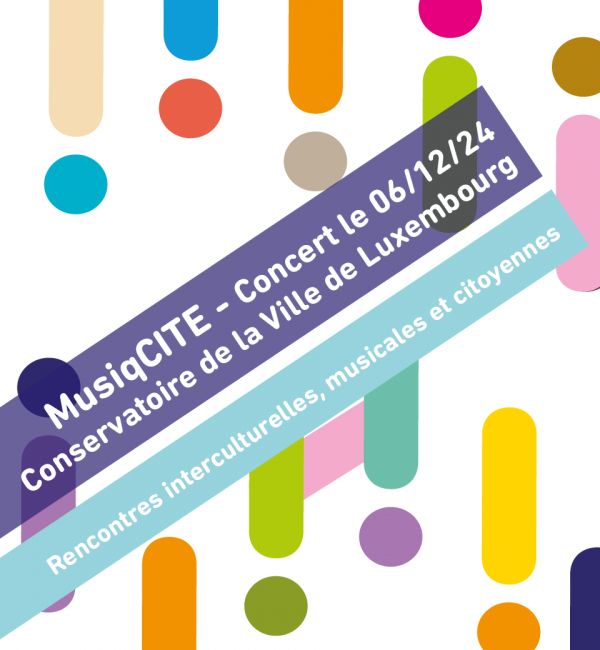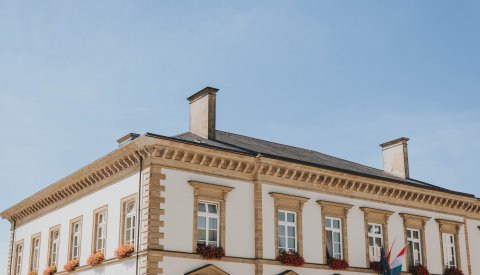
On Thursday, 7 November 2024, QuattroPole brought together around 100 political and economic players from Luxembourg City, Metz, Saarbrücken and Trier for its first forum on transforming city centres. The forum, which was organised by the Economic Development working group, served as a springboard for the next QuattroPole Hackathon, which is scheduled for May 2025.
First topic at hand: concrete accomplishments in the four cities
The event featured lectures and a roundtable discussion on topical issues such as managing vacant commercial spaces, nature in the city, tourism and digitalisation. Speakers from the four cities shared their experiences and presented creative approaches to revitalising urban centres. The discussion highlighted the challenges and goals shared by the QuattroPole cities, and potential ways for them to learn from one another. The QuattroPole Forum provided a valuable platform for developing future joint opportunities and exploring concrete initiatives aimed at transforming city centres.
Saarbrücken Mayor Uwe Conradt, who holds the QuattroPole chairmanship until 12 November 2024, was joined in welcoming the public by Metz Deputy Mayor Anne Daussan-Weizman, Trier Deputy Mayor Ralf Britten, and Robert L. Philippart, a Luxembourg City municipal councillor and member of the urban and economic development advisory committee.
The first part of the forum addressed four different aspects of transforming of city centres, drawing on examples of best practises in the QuattroPole cities. Virginie Chambon, head of retail at CBRE, talked about the economic aspects of trade in Luxembourg. Anne Daussan-Weizman then spotlighted the urban planning side, citing as an example the Rue Serpenoise renovation project, known as "La Serpentine", in Metz. Heiko Nowak, head of the Land Management and Geographic Information Department in Trier, explained how a digital map of a city can be used as the starting point for digitalisation. Finally, Sebastian Kurth, head of Saarbrücken's Economic and Labour Market Development Department, outlined the tourism strategy for Saarbrücken's city centre.
The forum provided the opportunity to deepen cooperation between the network's cities and lay the groundwork for joint initiatives to revitalise their urban centres.
Constructive dialogue between economic stakeholders
Next, Boris Hedde, managing director of IFH KÖLN and an expert on trade and urban development, discussed the importance of mindset in an era of change, and what local stakeholders can do to ensure city centres' long-term sustainability.
The event concluded with a roundtable discussion featuring Tom Baumert, director of the Luxembourg Confederation; Damien Levé, manager of urban projects at the Agence d'Urbanisme d'Agglomérations de Moselle (AGURAM Metz); Michael Genth, president of the Trade and Crafts Association in Saarbrücken; and Thomas Eggert, manager of the Trier Galerie shopping centre in Trier. The public also had a chance to engage in dialogue with the guests during this final portion of the QuattroPole Forum.
An instructive event whose findings laid the groundwork for an ambitious project
The preliminary results of this forum, which was coordinated by moderator Isabel Sonnabend from Saarbrücken, laid the foundation for the second QuattroPole Hackathon.
Participants in the next Hackathon will be asked to produce original solutions to the issues addressed during the QuattroPole Forum on transforming city centres. The QuattroPole Hackathon will be held on 16 and 17 May 2025 and, like the previous edition, will take place simultaneously in Luxembourg City, Metz, Saarbrücken and Trier.
QuattroPole – A cross-border network of cities
Straddling the borders of Germany, Luxembourg and France, QuattroPole is a cross-border region that is historically, economically and culturally extremely diverse, and where multilingualism is an accepted part of daily life. The cities of Luxembourg, Metz, Saarbrücken and Trier work closely together to heighten their visibility on the European stage and pool their know-how through innovative projects. This policy of cooperation, along with the implementation of joint projects, is geared towards creating synergies between the cities and bolstering the region's economic attractiveness.
Didn't find what you were looking for?
Start a new search here











